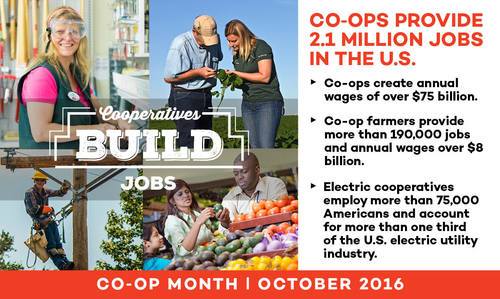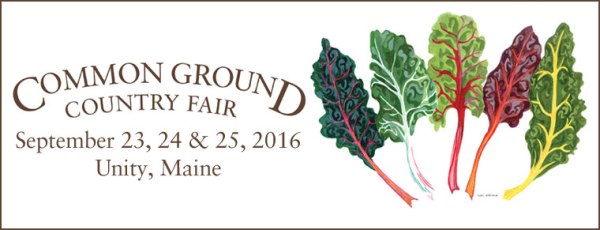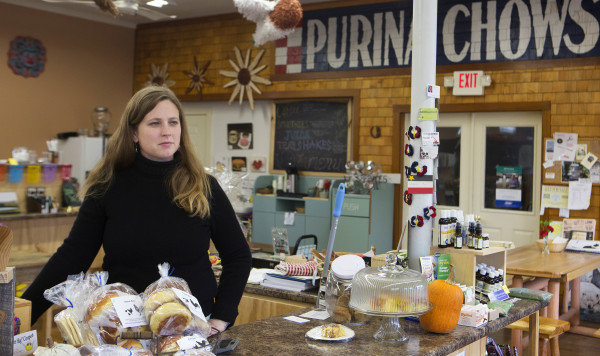Cooperative Maine
♦ March 29, 2016
♦ Leave a comment
You’re invited to the 3rd Annual
Principle Six Conference
Viles Arboretum Conference Center, 153 Hospital St, Augusta, Maine
Saturday, April 30, 2016, 8:30 am – 5 pm
Hosted by:
Cooperative Maine | Cooperative Development Institute & Democracy at Work Institute
Principle Six brings us together as cooperatives to explore ways that we can support one another, meet our needs together and build a cooperative economy. This year we will explore our central theme “How do we grow a cooperative ecosystem?” This theme will be explored through open space discussions in the morning, a keynote address from Joe Marrafino of the Democracy at Work Institute, networking during lunch and workshops in the afternoon. You will leave with a renewed sense of connection, new skills and a conversation about growing our cooperative movement in Maine.
Register Online
Program
8:30 am - Arrival, register, get ready for prompt beginning at…
9 am - Opening and Open Space Orientation* - Main Room - 20 min.
Using the “Open Space”* meeting philosophy we will explore our Framing Question: “How Can We Grow a Cooperative Ecosystem?”
POSSIBLE topics we might discuss could include:
Young and startup co-ops; Support group: member-workers; Lessons from cooperative crises/closures; Support group: general managers; Staff on a co-op board, good or bad idea?; How can co-ops in Maine work together more effectively? And more…bring your ideas:
9:30 am - Open Space - Session A each space will have a convener. 50 min. +/-
10:30 am - Open Space - Session B each space will have a convener. 50 min. +/-
11:30pm - Open Space ‘Harvest’ – Main Room – reports from Open Space sessions. 30 min.
12:00pm Speaker (in Main Room) – Keynote address by Joe Marrafino, DAWI 30 min.
12:30 pm - Lunch, Main Room, w/networking and informal announcements at end of lunch 75 min.
1:45 pm - Workshop C – please choose from one of four, to help with room allocation. 80 min.
C1 Financing for Co-ops: Gloria LaBrecque, Cooperative Fund of New England
C2 Meeting Facilitation: Jane Haskell, UMaine Cooperative Extensions
C3 Next steps: Maine Cooperative Business Association; Rob Brown, Kate Harris, Cooperative Development Institute
C4 Participatory Management & Leadership Development: Marcel Gagne, Cooperative Development Institute
3:10 pm - Workshop D – please choose from one of four, to help with room allocation. 80 min.
D1 Open Book Financial Management: Joe Marrafino, Democracy at Work Institute
D2 Meeting Facilitation: Rachel Lyn Rumson, Cooperative Design Lab
D3 Marketing Co-ops: Marada Cook, Crown o’ Maine Organic Cooperative
D4 Growing a Cooperative Food System: Jonah Fertig, Cooperative Development Institute, Betsy Garrold, Marsh River Co-op, Mark Sprackland, Independent Retailers Shared Services Cooperative
4:30 pm - Closing – Main room - “One word/One sentence” comments/reflections, from each person; paper evaluations. 15-20 min.
Register Online
——————————————————————————————————
Principle Six is hosted by Cooperative Maine, Cooperative Development Institute and Cooperative Development Institute and sponsored by Cooperative Fund of New England, Equal Exchange and the Independent Retailers Shared Services Cooperative
*Open Space, The Four Principles:
Whoever comes are the right people
Whatever happens is the only thing that could have
Whenever it starts is the right time
When it’s over, it’s over
Open Space, The Two Engines:
Passion for the issue, bounded by the
Responsibility to search for and find solutions
Open Space, The One Law (or the ‘Law of Two Feet’)
During the course of the meeting, any person who finds him or herself in a situation where they are neither learning nor contributing, must use their two feet and go to some more productive place.
Like this:
Like Loading...
Cooperative Maine
♦ March 25, 2016
♦ Leave a comment
On March 25, 2016,
Cooperative Maine turned 9 years old!
A blast from the past!
Here’s what happened at our first meeting:
On Sunday, March 25, 2007 more than two dozen people from around Maine, representing nearly every sector of cooperative enterprise met in Augusta to discuss the potential for strengthening their local economies and communities through greater cooperative business development in the state. They focused on three areas: defining the group’s mission; what the nature (structure) of this group should be, and its connection to other groups; and identifying possible initial goals as well as strategies for achieving them. By day’s end, the group had agreement on a general mission, a place and tentative date for the next meeting (June in Belfast) and had approved the registry of a web site.
Mission
There was general agreement that everyone in the room was committed to seeing increased cooperative development in Maine. (The group was given the International Co-operative Alliance’s definition of a cooperative: “An autonomous association of persons united voluntarily to meet their common economic, social, and cultural needs and aspirations through a jointly owned and democratically controlled enterprise.”) Repeated emphasis was placed on building local/regional reliance among co-ops and between co-ops and other stakeholders.
Structure and Funding
Some think a new non-profit or co-op might serve this end more effectively and others would like to look at existing organizations we might become part of. A development subcommittee will keep this discussion moving forward. While some feel reluctant to start fundraising until this work is further along, there appeared to be agreement that we should raise some funds right away to pay someone to coordinate this effort and to do at least some of the “grunt work” that will arise from that (as well perhaps as to enlist the help of volunteers).
Goals and Strategies
Predictably, there were many excellent suggestions. Most could be labeled ‘educational’ and many fell into the ‘networking’ realm as well. These included holding statewide, regional, and/or distance-learning events for co-ops, other stakeholders, and the public; creating an online information clearinghouse, and curriculum and policy development. Other goals: start more co-ops, find funding for development.
Emphasis was placed on self-education as well, including conducting a needs/resources survey of existing Maine co-ops; utilizing resources better to help one another and to foster new co-op development (e.g. through mentoring, information exchange, etc.); surveying co-ops elsewhere for replicable models, best practices, advice and assistance; and connecting with groups/resources other than co-ops, in Maine and beyond, who support or who might support cooperative development.
Like this:
Like Loading...
Cooperative Maine
♦ January 24, 2016
♦ Leave a comment
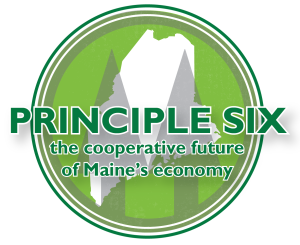
3rd Annual Principle Six Conference | 2016
153 Hospital Street, Augusta, ME 04330
~
Saturday, April 30, 2016, 9 am to 4 pm
~
Principle Six registration will be online, check back here -OR- on home page for the info & link.
SAVE THE DATE
The third annual Principle Six conference of Maine cooperatives is scheduled for:
Sat. April 30, 2016 from (approx. 9-4)
(snow date, Sunday, May 1)
In Augusta, at the Viles Conference center, same location as last year, with additional room.
NOW is the time to begin discussing who will attend from YOUR co-op: managers, staff, board, members?
Please tell all to…. “SAVE THE DATE”
Stay tuned for more details as we learn them.
Principle Six registration will be online, check back here -OR- on home page for the info & link.
ALSO: Sponsorship from co-ops and organizations, or donations from individuals to the scholarship fund (to assist low-income folks and students to attend) can be in form of a check: “Co-op Maine” and mailed c/o 88 Hart Rd, Northport, ME 04849. Anyone able to donate $100 or more and seeking a tax-deduction, please write check to “ROSC” and add ‘Co-op Maine’ to the memo line.
We also plan on having an online method of donating soon. Thanks for your patience.
Like this:
Like Loading...
Cooperative Maine
♦ December 2, 2015
♦ Leave a comment
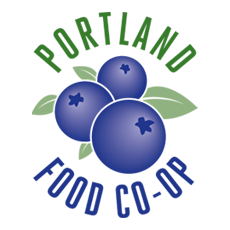
www.PortlandFood.coop
Nice article, below, with some strong numbers proving the potential of cooperatives to power Maine’s future food system! It was a long, long road beginning with the 1st meeting in March of 2006! Congratulations, Portland!
By David Carkhuff | Portland Phoenix | Nov 25, 2015
What a difference a year makes, especially in the life of a grocery cooperative.
Nearly a decade ago, the Portland Food Co-op was little more than a meeting topic among hopeful residents.
But the last year has been a doozy for the cooperative. Its retail grocery store at the base of Munjoy Hill has thrived, member-owners reported, and listeners could almost hear sighs of both relief and gratitude.
“This year, the Portland Food Co-op has exceeded all of our original expectations. … We have almost 3,500 member-owners, and we have exceeded all projections for sales and purchases,” said Portland Food Co-op General Manager John Crane.
Last Thursday, on the one-year anniversary of the opening of the cooperative’s retail store at 290 Congress St., Crane and others celebrated.
Community members have purchased more than $1 million worth of goods and foods grown and produced in Maine, Crane said. In less than a year, the cooperative has more than doubled the number of local farmers and producers involved and gained more than 1,000 additional member-owners, he noted.
The secret to a cooperative’s success is commitment, Crane said.
“It’s really about bringing the people together, it’s that common vision and deciding you want to do it. … It’s the will because there’s no guiding force behind this outside of the people who make up the co-op deciding they want to put in the time and energy,” Crane said.
Three years ago, Crane joined a buying club operating out of a little warehouse, with 400 members.
“We sat around with a space heater under the table thinking, ‘Wouldn’t it be great if we had a retail store in Portland?’ And two years ago, we announced we were going to do it, last year we opened it. And to me one of the things that makes me the proudest of this venture is this community market really came from the community,” Crane said.
Today, 27 employees work at the co-op, and the business logged more than $3 million in sales this year and invested more than $2 million in Maine’s economy, organizers said.
Katia Holmes, who runs Misty Brook Farm in Albion with her husband, Brendan, recalled selling a little bit of milk at the cooperative in its early days of tentative retail sales. Since then, the organic farm has sold more than 5,000 pounds of vegetables, 1,500 gallons of milk, 1,200 dozen eggs, 450 pounds of meat and 350 pounds of grains through the co-op.
“Over this first year, they have become our number one biggest customer in sales, and I believe that’s because of the diversity of products that they offer,” Katia Holmes said.
Brendan Holmes said the “micro economy” of Albion benefits as well, as the farm has been able to hire locally to meet this Portland-based demand.
Stacy Mitchell, co-director of the Institute for Local Self-Reliance, said the cooperative model is the most locally sourced and focused of any business setup.
“When you spend a dollar here, not only are you supporting this business and everyone who works here, but you’re also supporting all of the other local businesses that the co-op uses … and you’re supporting all of these great food producers in Maine, so when you spend money here, there’s just this great ripple of benefits that goes through the local economy,” Mitchell said.
As an example, Tortilleria Pachanga of Portland logged sales of 20,000 tortillas at the co-op, a success story for one of the member-owners.
The history of the cooperative reaches back nearly 10 years, into a past when the success of such a venture was anything but certain.
A history posted on the cooperative’s website explained, “The momentum for the Portland Food Co-op started in the spring of 2006, in response to the closure of a locally owned natural food grocery store in Portland. In 2006-2007, community leaders organized several community meetings to create a shared vision for access to local food in greater Portland.”
From 2008-2009, a leadership team built the cooperative and created bylaws, articles of incorporation and a member-owner structure, and in 2010 the cooperative kicked off its first member-owner drive, but a retail site remained a goal.
From 2008-2012, the focus on pre-order operations supported growth to over $200,000 in annual sales, the cooperative reported, with 150 member-owners filling monthly work shifts. Yet an organizing effort to start a retail storefront food co-op slowed for several years, until 2012, when leaders revisited the development of a retail space, according to the history.
In the fall of 2013, the Portland Food Co-op began a member-owner drive and fundraising program to reach 2,000 member-owners and $1.6 million needed for opening the retail store. In October 2013, Portland Food Co-op launched the Let’s Open the Doors campaign to sign up 1,000 new member-owners needed to help open the community-owned market in Portland, the cooperative organizers announced. From the launch of the Let’s Open the Doors campaign, new member-owners were signing up every day, and in about three months, the cooperative gained more than 600 member-owners, the group reported.
The Portland Food Co-op announced in January of 2014 that it had signed the lease on the space for its planned storefront location, the former space of Labor Ready, and the store opened in the fall of that year.
For more about the Portland Food Co-op, call 207.805.1599 or visit http://www.portlandfood.coop
Like this:
Like Loading...
